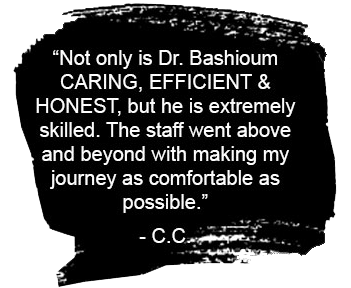Cosmetic Surgery for Career Boost
April 2nd, 2012
I have written about this new trend before and it is troubling when a patient has this single expectation of why they want cosmetic surgery. For the same reason that I try to screen patients for unrealistic expectations, understanding motivation for undergoing cosmetic surgery may be complicated. In an age where youth is sometimes prized over experience and looking young equates to vitality, I can understand why patients often turn to cosmetic surgery to maintain a competitive edge.
According to employment expert Prof Chris Warhurst, “employers now place a higher value on physical appearance and presentation.†However, the way you present yourself, how stylish you dress, your confidence and level of physical fitness are all important factors when being sized up in today’s job market. If some anti-aging Nipntucks are part of this package, I feel it is appropriate. Last year 13.8 million cosmetic surgery procedures were performed, but when cosmetic surgery is the primary goal to secure a job, get a husband or used to seek attention, extreme caution should be exercised.
Image “Mirror, Mirror on the wall. Who’s the fairest of them all?” From the Disney film, “Snow White.”
Read more: Anti-aging nipntucks
Cosmetic Surgery: Unrealistic Expectations
December 14th, 2011
Who should have cosmetic surgery? So far, I have mentioned that physical health is a necessity before elective cosmetic surgery should be considered and that I require a current history and physical by an independent primary care physician before any patient is added to my schedule for surgery.
Let’s talk about patient expectations or why somebody is seeking cosmetic surgery to make a physical change. I evaluate patients on several levels. Patients with a good mental attitude, including healthy motivation are generally appropriate candidates for cosmetic surgery.
Unrealistic expectations or patients suffering from untreated body dysmorphic conditions do not make good surgical candidates and we can look to Michael Jackson to see why. They are frequently dissatisfied with the results, regardless of how they turn out and rarely see themselves in a realistic or accurate fashion.
A patient having surgery thinking it will save a personal relationship is never a good idea. Cosmetic surgery should not be done for someone else. The ideal motivation is driven by an internal sensitivity about a real physical feature, such as a hump on a nose or facial aging. Body changes or disfigurement may also be the result of illness, trauma, sun damage, pregnancy, genetics or birth deformity.
So healthy motivation and realistic expectations are the key factors in evaluating patients considering aesthetic surgery. Years of experience help me sort this out with prospective patients.
I find that healthy patients with appropriate motivation and realistic expectations make the happiest and most satisfied patients in my practice.
